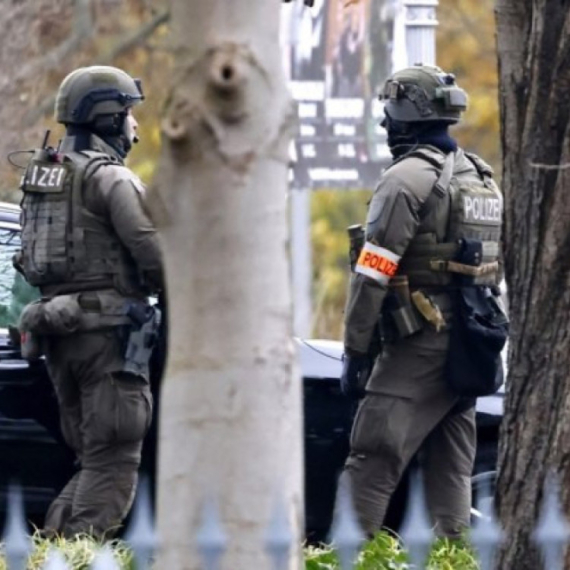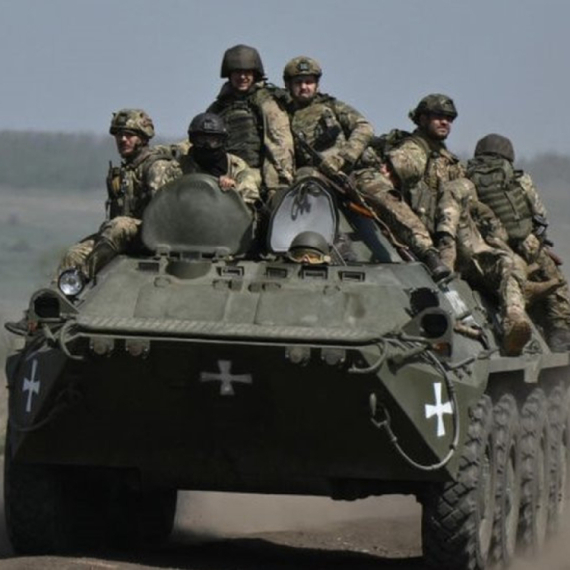Work group set up to deal with crisis
The government is currently facing about 30 strikes and has formed a work group which will prepare measures for dealing with the crisis.
Wednesday, 29.07.2009.
12:58

The government is currently facing about 30 strikes and has formed a work group which will prepare measures for dealing with the crisis. The Employers Association and Independent Union welcomed this move, which they said should “put out the fire”. Work group set up to deal with crisis The announced “hot union fall” seems to have already arrived in July. Hardly a day goes by in Serbia without dissatisfied Serbian workers blocking railroads or streets, spending time in front of municipal and government buildings instead of at their workplaces. The work group now has a month to prepare its set of measures. It will be headed by Labor Minister Rasim Ljajic. “The fact is that at moment we have about 30 strikes in Serbia that are current or announced. The government must be pro-active in its policies in order to stop the strikes and protest from becoming more radical. We must protect the rights of the workers, but also help the companies that have realistic potential to continue working after the crisis,” Ljajic said. Independent Union President Ljubisav Orbovic is afraid that the work group is being formed too late, but stressed that its success will ride on the type of powers it will be given. “The real effects of the work group could have been seen maybe in March or April, then there might have been serious effects. Now it will be a lot harder,” Orbovic said. A flood of worker dissatisfaction was expected since 24 percent of privatizations in Serbia have been unsuccessful, Employers Association President Stevan Avramovic said. He said that this association does not support employers that do not fulfill obligations towards the workers or state. Avramovic also stated that since the state was selling the companies in who employ disgruntled workers, it is the now state’s responsibility to solve the problems. “Since the state sold these companies, it is most responsible. It must make a team which will stop this. In Romania, when a company was being sold, there was a commission that determined who could buy it. We offered the government in 2000 to provide creditworthiness of employers who were acquiring companies, but they rejected the offer,” Avramovic said. Now, one of the measures will be to adopt a law that will enable years of employment to be linked for those whose pension and health insurance contributions were not paid. Funds for these measures are expected to come from the money saved by decreasing and freezing the wages of state administration workers. A scene from one of a dozen strikes in Serbia (Tanjug)
Work group set up to deal with crisis
The announced “hot union fall” seems to have already arrived in July.Hardly a day goes by in Serbia without dissatisfied Serbian workers blocking railroads or streets, spending time in front of municipal and government buildings instead of at their workplaces.
The work group now has a month to prepare its set of measures. It will be headed by Labor Minister Rasim Ljajić.
“The fact is that at moment we have about 30 strikes in Serbia that are current or announced. The government must be pro-active in its policies in order to stop the strikes and protest from becoming more radical. We must protect the rights of the workers, but also help the companies that have realistic potential to continue working after the crisis,” Ljajić said.
Independent Union President Ljubisav Orbović is afraid that the work group is being formed too late, but stressed that its success will ride on the type of powers it will be given.
“The real effects of the work group could have been seen maybe in March or April, then there might have been serious effects. Now it will be a lot harder,” Orbović said.
A flood of worker dissatisfaction was expected since 24 percent of privatizations in Serbia have been unsuccessful, Employers Association President Stevan Avramović said.
He said that this association does not support employers that do not fulfill obligations towards the workers or state.
Avramović also stated that since the state was selling the companies in who employ disgruntled workers, it is the now state’s responsibility to solve the problems.
“Since the state sold these companies, it is most responsible. It must make a team which will stop this. In Romania, when a company was being sold, there was a commission that determined who could buy it. We offered the government in 2000 to provide creditworthiness of employers who were acquiring companies, but they rejected the offer,” Avramović said.
Now, one of the measures will be to adopt a law that will enable years of employment to be linked for those whose pension and health insurance contributions were not paid.
Funds for these measures are expected to come from the money saved by decreasing and freezing the wages of state administration workers.




























































Komentari 0